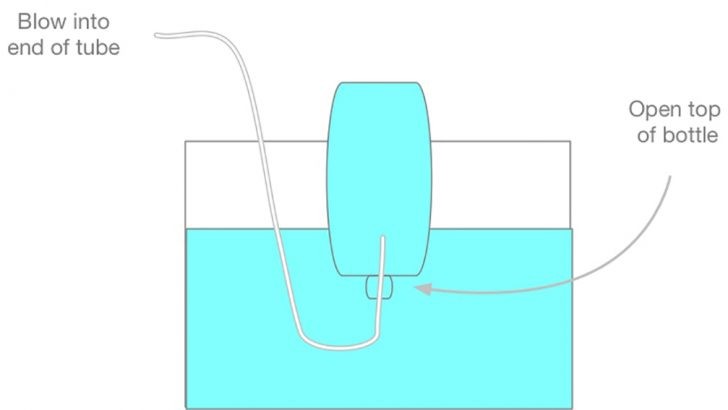Children’s Corner
There are many tests to see how fit and healthy you are, each checking certain parts of your body. One of the indicators of good health is lung volume. Just how much air can your lungs can hold? With the help of a few simple household objects, some scientific know how and a dash of curiosity you can make this experiment look easy.
Apparatus:
– Clean plastic tubing
– A large plastic bottle
– Water
– Kitchen sink
Method:
- Make sure the plastic tubing is clean
- Put about 20cm of water into your kitchen sink.
- Fill the plastic bottle right to the top with water.
- Put your hand over the top of the bottle to stop water escaping when you turn it upside down.
- Turn the bottle upside down. Place the top of the bottle under the water in the sink before removing your hand.
- Push one end of the plastic tube into the bottle.
- Take a big breath in.
- Breathe out as much air as you can through the tube.
- Measure the volume of air your lungs had in them by measuring how many millilitres of water are left in the bottle and taking it away from the full capacity of the water bottle.
- Make sure you clean up the area to finish.
What’s happening?
As you breathe out through the tube, the air from your lungs takes the place of the water in the bottle. If you made sure you took a big breath in and breathed out fully then the resulting volume of water you pushed out is equivalent to how much air your lungs can hold. Having a big air capacity in your lungs means you can distribute oxygen around your body at a faster rate. The air capacity of lungs (or VO2 max) increases naturally as children grow up but can also be increased with regular exercise.
Over time people’s lung capacity decreases but there are certain breathing exercises that can help maintain and increase lung capacity, making it easier to keep your lungs healthy and get your body the oxygen it needs.
Regular exercise is an excellent way to stay in shape but also to keep your lungs healthy, but improving the quality of air that you breath is another step. Your lungs will thank you for keeping the house tidy and clean, free of mould and dust.
Smoking is probably the worst thing you can do to your lungs, even if someone is smoking close to you it has a negative impact, so stay well away!


 Chai Brady
Chai Brady
